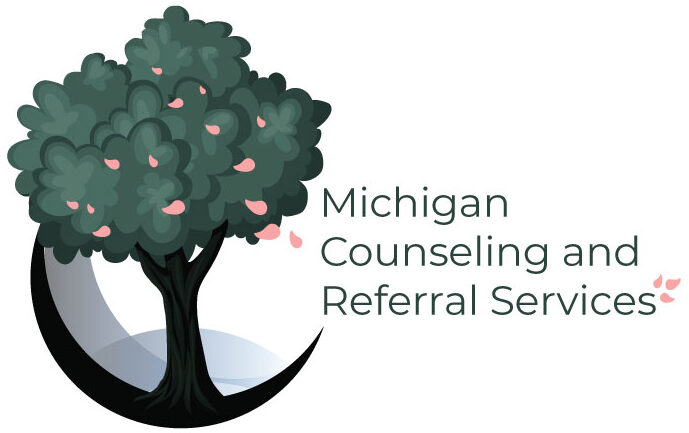Neurodivergent Rumination – The What and How to Address It
Rumination, a repetitive and passive focus on one’s distress, has been widely studied in the context of mental health. This cognitive process can be particularly detrimental for neurodivergent individuals, who often experience heightened vulnerability to mental health challenges with their neurodivergent rumination.
When combined with the unique stressors faced by those identifying as part of the LGBTQIA+ population, the impact of neurodivergent rumination can be profound. Raising awareness about neurodivergent rumination in these intersecting communities is crucial for fostering better mental health outcomes and enhancing overall well-being.
Neurodivergent Rumination – The Intersection of Neurodiversity and Rumination
Neurodivergent individuals, including those of us with ADHD, autism, and other neurological differences, often experience heightened sensitivity to their environments and internal states.

We give a more comprehensive overview of neurodiversity in this article if you want to take a look!
This sensitivity can make them more prone to rumination, as their brains may struggle to shift focus away from distressing thoughts or stimuli (Smith et al., 2020).
For example, someone with ADHD may find it difficult to break free from a cycle of negative thinking due to challenges with executive functioning and attention regulation.
Similarly, individuals with autism may become fixated on certain thoughts or events, leading to prolonged periods of rumination. This makes neurodivergent rumination specially difficult for those of us who are neurodivergent.
Neurodivergent Rumination – Unique Stressors Faced by LGBTQIA+ Individuals
LGBTQIA+ individuals face unique stressors that can exacerbate rumination. Discrimination, social rejection, and internalized homophobia or transphobia are common experiences within the community.
These stressors can contribute to a heightened risk of anxiety, depression, and other mental health issues (Meyer, 2003).
For neurodivergent LGBTQIA+ individuals, the intersection of these identities can create a compounded effect, where the stressors of being neurodivergent and LGBTQIA+ intersect, leading to increased vulnerability to rumination.

The Harmful Impact of Neurodivergent Rumination
The experience of neurodivergent rumination can be particularly harmful for neurodivergent LGBTQIA+ individuals.
Repetitive negative thinking can reinforce feelings of helplessness and hopelessness, leading to a cycle of worsening mental health.
For example, an autistic individual who faces social rejection due to their gender identity may ruminate on these experiences, leading to heightened anxiety and depression.
This cycle can be difficult to break, especially without appropriate support and interventions (Nolen-Hoeksema et al., 2008).
The Need for Awareness and Destigmatization for Neurodivergent Rumination
Raising awareness about the impact of neurodivergent rumination on neurodivergent LGBTQIA+ individuals is essential for several reasons.
Firstly, it helps to destigmatize the experiences of these individuals.
Understanding that neurodivergent rumination is a common cognitive process that can be exacerbated by specific stressors allows for a more compassionate and empathetic approach.
This can reduce feelings of isolation and shame, encouraging individuals to seek help and support.
Developing Targeted Interventions
Second, awareness can lead to the development of targeted interventions and support systems.
Mental health professionals, educators, and community organizations can benefit from understanding the unique challenges faced by neurodiverse LGBTQIA+ individuals.

This knowledge can inform the creation of tailored interventions that address both rumination and the specific stressors experienced by these communities.
For example, cognitive-behavioral therapy (CBT) techniques can be adapted to help individuals break the cycle of rumination, while also addressing issues related to neurodiversity and LGBTQIA+ identity.
1. Empowering Self Awareness and Self-Compassion
Third, raising awareness can empower neurodivergent LGBTQIA+ individuals to develop self-awareness and self-compassion.
Recognizing the patterns of neurodivergent rumination and understanding how these patterns are influenced by their unique experiences can be a powerful tool for self-management.
By developing strategies to interrupt rumination and engage in more adaptive thinking patterns, individuals can enhance their resilience and overall well-being.
2. Mindfulness-Based Interventions
One effective approach to addressing rumination is mindfulness-based interventions.
Mindfulness practices, such as meditation and mindful breathing, can help individuals develop greater awareness of their thoughts and emotions without becoming entangled in them.
For neurodivergent LGBTQIA+ individuals, mindfulness can provide a valuable tool for managing neurodivergent rumination and reducing its impact on mental health.
These practices can help individuals create a sense of inner calm and stability, allowing them to navigate external stressors more effectively.
3. Community Support and Peer Networks
Community support and peer networks also play a crucial role in addressing neurodivergent rumination.
Connecting with others who share similar experiences can provide validation and a sense of belonging, reducing feelings of isolation.
Peer support groups, both in-person and online, can offer a safe space for individuals to share their experiences and coping strategies.
These networks can also serve as a source of strength and resilience, helping individuals to navigate the challenges of neurodivergent rumination and its impact on mental health.
Conclusion
In conclusion, raising awareness about rumination for neurodivergent LGBTQIA+ individuals is essential for promoting better mental health outcomes and overall well-being.
By understanding the unique challenges faced by these communities and developing targeted interventions, we can help individuals break free from the cycle of neurodivergent rumination and build more resilient and fulfilling lives.
Compassionate and informed support, combined with self-awareness and community connections, can empower neurodivergent LGBTQIA+ individuals to navigate their mental health challenges and thrive.
If you would like to learn how to manage your own neurodivergent rumination, I am able to help! Feel free to contact my practice with the info below!
Contact Me Directly!
All inquiries are responded to within 1-3 business days from inquiry. Feel free to use my contact information to leave a message!
Hours: Monday-Thursday 12-7pm
Phone: (616) 259-0255
Email: info@michigancrs.com
Location: 1451 East Lansing Dr., Suite 219
East Lansing, MI 48823
References
Meyer, I. H. (2003). Prejudice, social stress, and mental health in lesbian, gay, and bisexual populations: Conceptual issues and research evidence. Psychological Bulletin, 129(5), 674-697. https://doi.org/10.1037/0033-2909.129.5.674
Nolen-Hoeksema, S., Wisco, B. E., & Lyubomirsky, S. (2008). Rethinking Rumination. Perspectives on Psychological Science, 3(5), 400-424. https://doi.org/10.1111/j.1745-6924.2008.00088.x Smith, R. A., D’Mello, S. K., & Franklin, R. G. (2020). The interplay between rumination and executive function in predicting depressive symptoms. Journal of Affective Disorders, 277, 486-494. https://doi.org/10.1016/j.jad.2020.08.044
